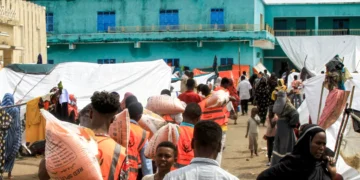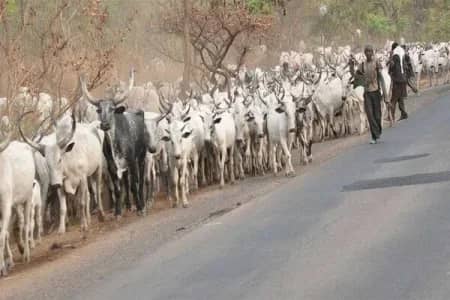Tragedy on the River Benue: Over 100 Cattle Dead Amid Fears of Renewed Herder-Farmer Tensions
Makurdi, Nigeria — June 15, 2025
More than 100 cattle believed to belong to suspected armed herdsmen died under mysterious circumstances while attempting to cross the River Benue on June 14, raising fresh concerns amid Nigeria’s long-running farmer-herder conflict.
At least 64 cattle were confirmed dead in a single-day incident that occurred at multiple crossing points along the riverbank, with the worst-hit areas located between Benue and Nasarawa States. Eyewitnesses described a chaotic scene as erosion-weakened sandbanks collapsed under the weight of the herds, sending dozens of animals plunging into the river. Many drowned before reaching the far shore.
Local fishermen said they observed erratic herd movements in the early hours of the morning—activity they interpreted as a possible prelude to violence.
“We saw them trying to rush across with urgency, not in the usual pattern. It looked like a retreat—or something worse,” said one fisherman who declined to be named for safety reasons.
Though no direct confrontation took place, and environmental factors appear to be the primary cause of the cattle deaths, local narratives have begun to frame the event as more than a natural disaster.
In nearby farming communities, the river’s sudden, deadly disruption has been described as a form of “silent judgment,” reflecting deep-rooted mistrust of itinerant herders who are often accused of violent raids and land encroachment.
Despite the scale of the incident and reports of increased herder movement in the area, there has been no official statement from the Nigerian Police or security agencies as of press time.
This silence has only fueled speculation and concern, particularly in communities already living in fear of renewed clashes.
Environmental analysts point to severe riverbank erosion as a likely contributor to the collapse. Seasonal rains have accelerated degradation along parts of the Benue River, making livestock crossings increasingly hazardous.
However, in Nigeria’s volatile Middle Belt—where the line between natural events and political symbolism often blurs—tragedies like this are rarely seen as accidental. In areas where history has conditioned people to anticipate violence, even geography becomes politicized.
As tensions simmer and communities brace for potential reprisals, the deadly crossing on the River Benue serves as a grim reminder of how fragile the boundary between nature and conflict has become in Nigeria’s contested heartland.










































